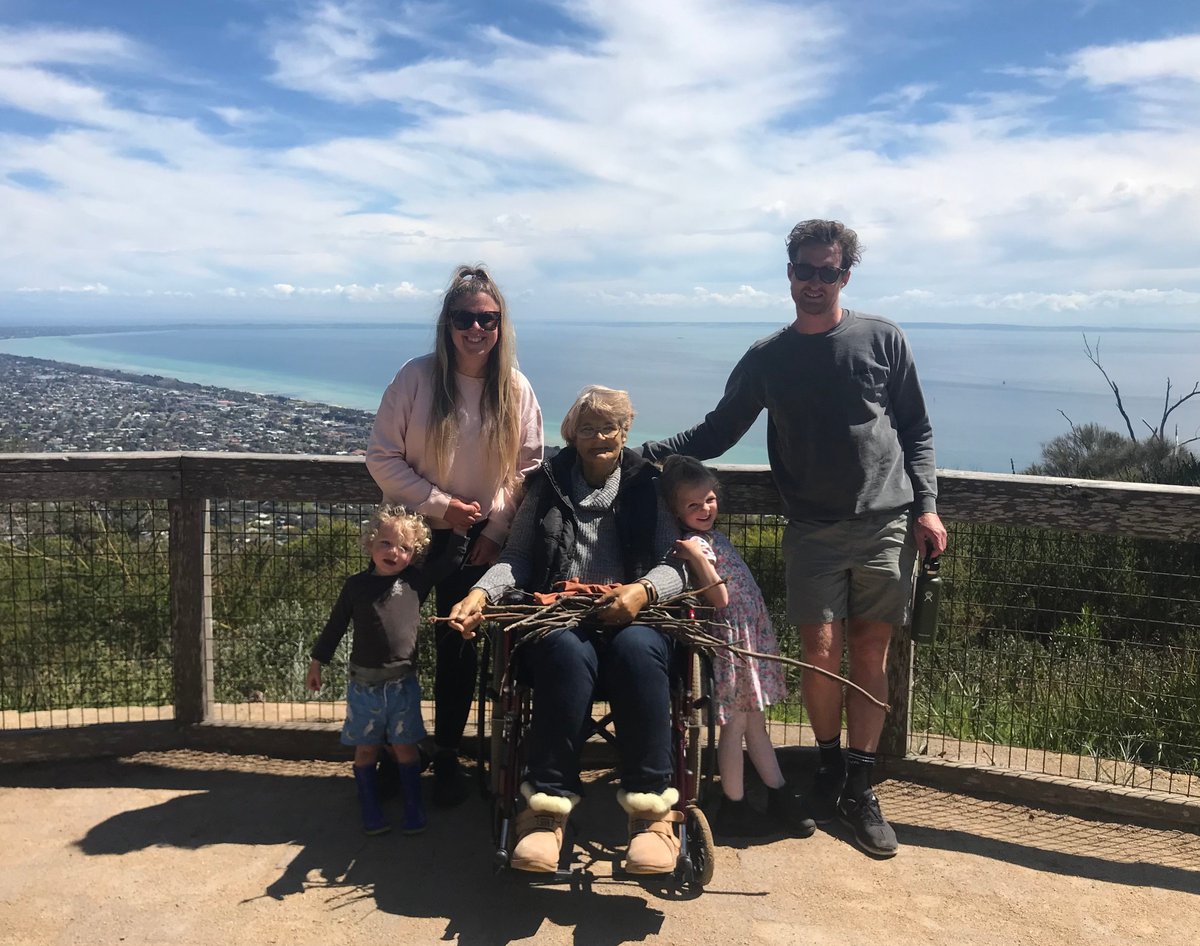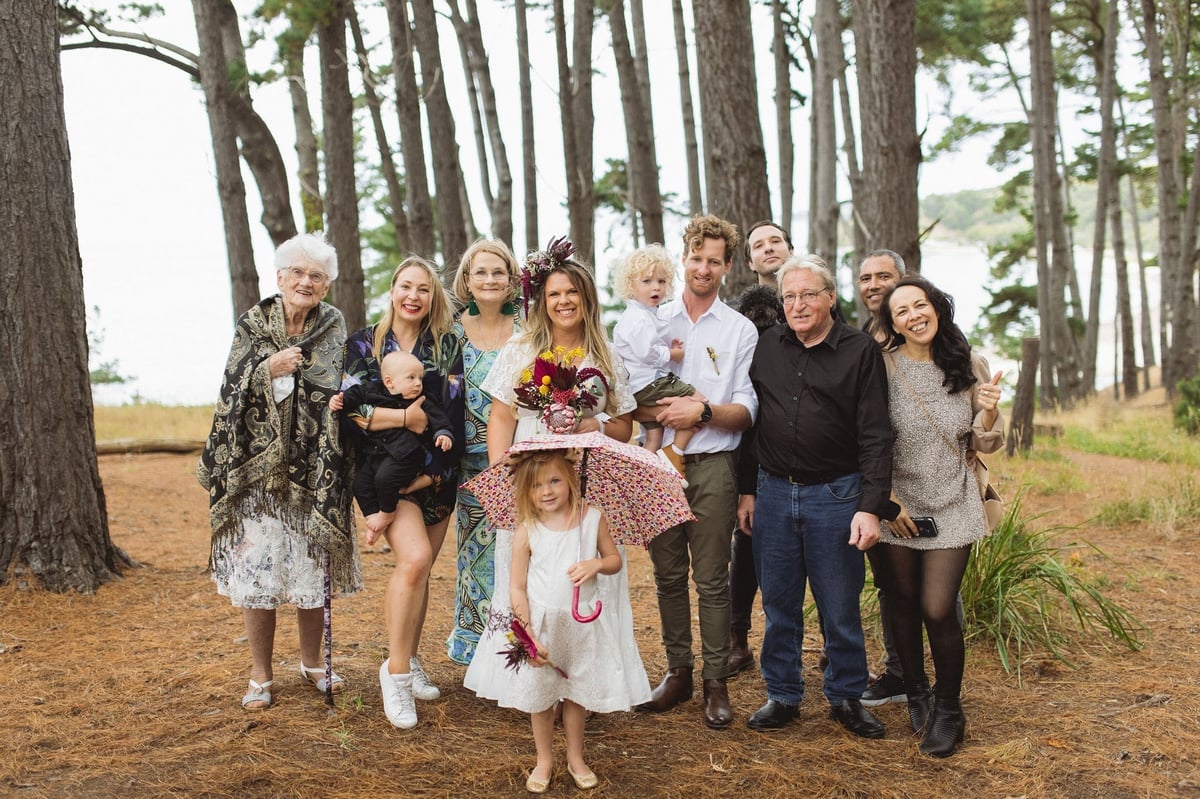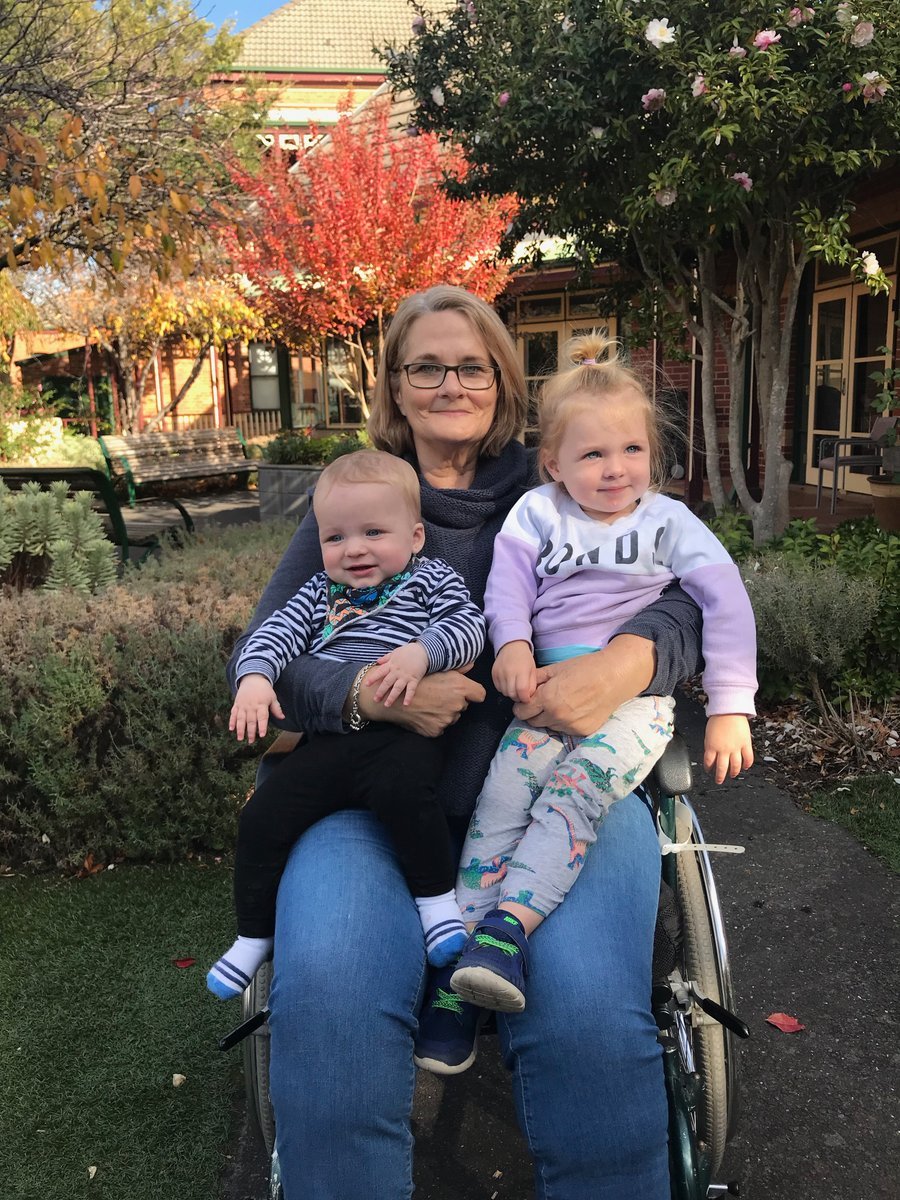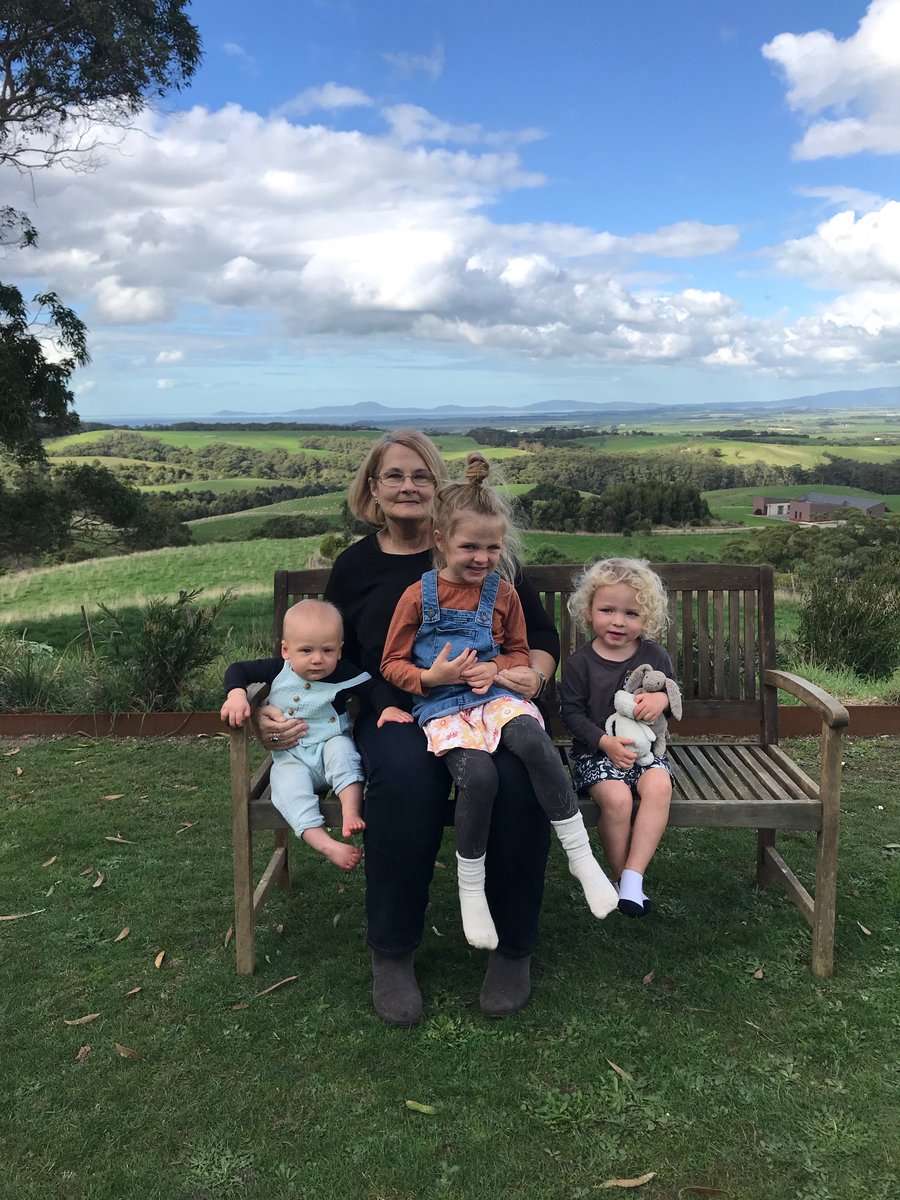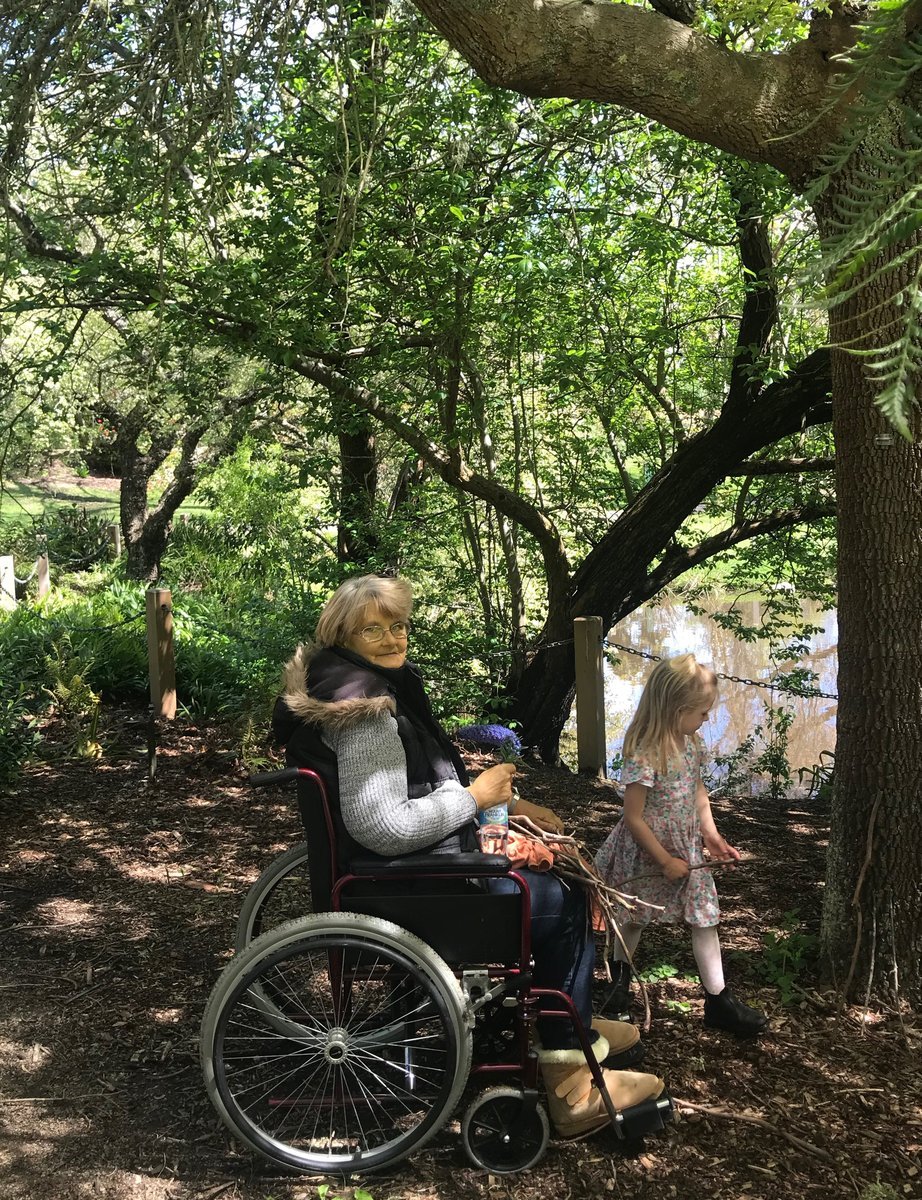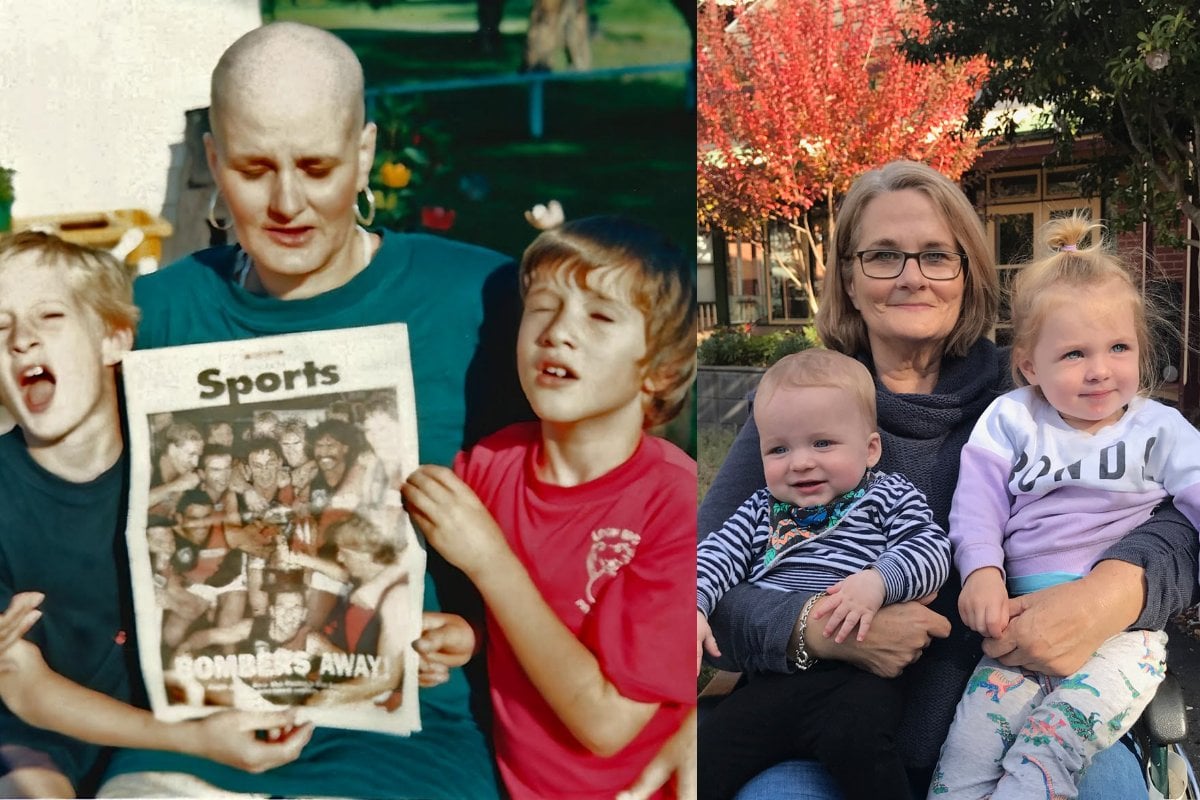
This post deals with sensitive topics and may be triggering for some readers.
Sadly, just days after sharing her story with us, Marlene passed away on Thursday, October 7, 2021. Supported by her sons Nik and Mat, it was her wish that we still publish her story exactly as it was written and share her important words.
Marlene Parsons has had breast cancer for 28 years and this time, the doctors are right, she is finally dying.
But she doesn’t want you to feel sorry for her. She considers herself lucky. She has had a good life, a longer one than she was initially promised, and she is grateful for all the things she never thought she would see; her sons graduating, growing up, marrying and, most of all, becoming a grandmother.
Each milestone filled her heart and gave her the motivation to keep going to get to the next one.
Watch Check Your Breasts. Here's what to do, and what you're looking for. Post continues after video.
But there’s only so much one person’s body can take and the 63-year-old grandmother from Gippsland Lakes in Victoria has reached the end of her life.

